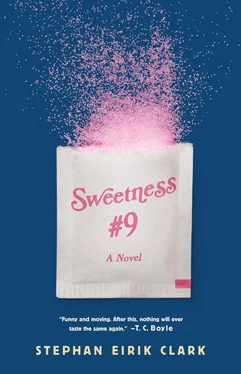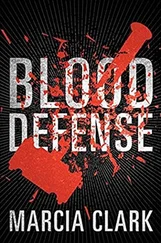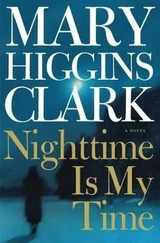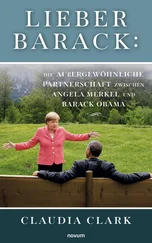The soldier pulled Ernst’s underwear up into view — pleased to see it was neither military issue nor entirely absent, the latter of which would have suggested Ernst was a major or a colonel trying to hide his identity.
“You say you’re a cook?” the soldier said.
Ernst accepted a cigarette from him. “In the bunker, yes. I was Hitler’s personal flavor chemist.”
The two other soldiers, who’d hung back to have a smoke, stepped forward now, lifting their rifles into position. “Did he say Hitler?” Even the tank seemed to have heard. The hatch popped open and a GI stuck his head out. “What’s going on?”
Like that Ernst became a prize, promising these men a quick promotion or at least a few days away from the front. Within minutes they were headed back in the direction they’d come from, away from the end of the war and toward something safer. The whole time, their new addition sat atop their tank like a beauty queen on parade. First, Ernst was debriefed by a colonel in the field, then shuttled back farther still, until finally he was dining with de Gaulle in Paris. “The Manet,” Ernst told him in more than passable French, “was regrettably hung lower than Hitler’s own juvenile work.”
After that, it was on to London and then Washington, where Ernst dined with more generals and dignitaries, more exiled leaders and men from lapsed states. Everyone wanted to hear the story. “Tell me about Hitler,” they’d say, and so Ernst would entertain them in one of three languages, telling them he had but one regret. “I wish I hadn’t left the bunker so soon. I should have been there when Hitler reached the end of his meal. Because to see him when he tried the custard I had prepared — he would have bitten his spoon clean in half, that or flown into one of his rages, jumped to his feet and overturned the table, and ordered the flavorist detained, detained and shot!”
“You see,” Ernst said to us that night at the dinner table, “the custard’s taste was not vanilla as advertised. It tasted”—and here he smiled at Priscilla—“like bread and water.”
He had hoarded the necessary ingredients for weeks, doing his best to obtain the flavors through various crude processes of distillation and extraction, the whole primitive endeavor harking back to Pavel Pabst’s pioneering work with the cambial sap of conifer trees. “I know what you’re thinking: I should have done more. But”—and here he looked at me—“I was never the type for heroic action. Speer needed a soldier; I was a flavorist. I could sweeten Hitler’s linseed mush for breakfast and give him that final taste of bread and water at dinner.”
He smiled. “It was my first work of art. Bread may not be so difficult to replicate, but to follow it with a hint of water…your father can tell you the difficulty of that. Water has no taste, or rather only the taste of its impurities. And the flavor was undeniable. Central Berlin aquifer.”
Priscilla sat stiffly in her chair, glancing between my twitching eyelid and Ernst. “Geschmack Drei?” she said.
It was what had sweetened the custard, but the question confused my mentor. He was adrift again, lost in time, so I spoke on his behalf, having picked up at least enough German to know this.
“It means Flavor Number Three,” I said.
On the morning of Thanksgiving, Betty and I awoke to news of another supermarket attack, this one the ninth overall and closer than any that had preceded it.
“Is that our Acme?” I said.
On the television, a reporter stood in the supermarket parking lot, saying someone had been injured minutes ago while reaching for a package of donuts.
“That’s our Acme,” I said.
Betty grabbed the remote and turned the TV off. I looked at her, my eye twitching, then hurried into the bathroom for my pills. The trial pack of anti-anxiety medication looked like a ransacked Advent calendar. After pushing out the seventh pill through its foil backing, I tossed the packaging back into its drawer, then grabbed the orange bottle of lorazepam and struggled to uncap it.
“Go downstairs and get the paper,” Betty said, after I’d finally gotten it open and dipped my head down to the tap. “Read the sports page. It’ll take your mind off things.”
I stashed the rest of the pills in my robe pocket and did as she said, or tried to. When I opened the front door, I found a manila envelope on the welcome mat. I picked it up and turned it over, not finding an address or a stamp on either side. Finally, I shook it tentatively. It made a sound like a maraca.
Forgetting about the paper, I took the package upstairs, opening it as I moved into the bedroom.
“What is it?” Betty said.
I dumped the contents onto the bed beside her: a dozen or more packets of sweetener, maybe twenty in all, none of them Mexican. Betty and I both reached for one, noticing that something had been written in black ink along the crimped edge.
“Swastikas,” Betty said. “Why would someone send us swastikas? We’re not even Jewish.”
I hurried down the stairs and into the garage, then returned with the VHS tape from our security deck. The system we’d had installed the previous day used stop-motion photography to capture an image every five seconds. I inserted the tape into our VCR, then rewound it to sunset and fast-forwarded through the events from there. Nothing suspicious appeared until just after sunrise, when a Trans Am parked across the street — and just as quickly drove away.
The tape ended in a burst of static. I rewound it to the Trans Am, paused, and hit a button on my remote to zoom in on the image. The driver appeared behind the window, his face a black blur, a splotch, a spectral presence.
“He must’ve seen the Invisible Eyeball,” I said. “He must’ve circled round and parked down the street, then snuck up to our door on foot. There must be a blind spot. Look!” I had returned the image to a standard perspective. The mailbox was in the center of the shot, the Trans Am behind it. “You can’t see the far corner of our lawn. He must’ve parked in front of Jon and Ken’s house and walked up to our door. There’s a blind spot!” I said, pointing. “Don’t you see, Betty?”
And then it came to me. “Hickey!”
“What?”
“I’m not about to stand around and wait to see what he does next!”
I turned for the door, tossing the remote onto the bed.
“But, David, what are you going to do?”
I was still wearing my pajamas and slippers. Betty ran down the stairs after me.
“It stops now,” I said, grabbing my coat from the closet in the hall and hurrying out to the garage through the kitchen.
Betty stepped into the garage as I was starting the engine of the Volvo.
“Are you sure this is a good idea?” she said. And then, as I backed out nodding my head: “I was thinking we’d eat around two!”
I drove to Jupiter Park in short time, stopping only at a pay phone to remind myself of Hickey’s address. He was no longer living in a house; his life had taken a bad turn, throwing him into an apartment complex not much unlike the one Betty and I had once known.
I parked in a spot reserved for guests and walked into the interior courtyard, then up the concrete stairs to his unit on the second floor overlooking the pool. I knocked, he opened the door, and then my fist flew out toward him. Hickey dodged the punch, but my second one landed — a glancing blow that he responded to by locking me up in his arms and dropping me hard down onto the floor just inside the doorway.
I wheezed, reaching for my side. “I think you cracked my ribs.”
“ I cracked your ribs!?!” He bounced on top of me—“What the fuck?”—then did it again, asking if I was on drugs. “I mean it!” he said. “Tell me this time!”
Читать дальше












